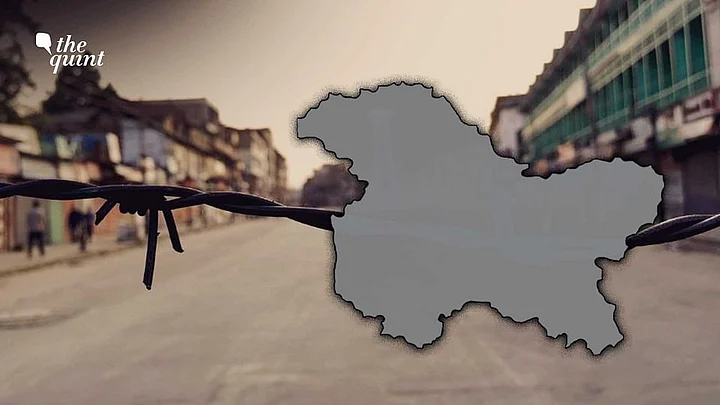The Jammu and Kashmir High Court on Friday, 27 May, ordered the Union Territory's administration to exhume the body of Amir Magrey, one of the four suspected militants killed in an encounter in Srinagar's Hyderpora on 15 November last year.
The court said that the government had "arbitrarily" refused the request of Margey's father regarding the body's exhumation since he was a resident of a remote village in Jammu called Gool, and "did not have much say in the Valley," The Indian Express reported.
The four suspects were killed during the encounter and allegedly buried in a hurry by the police in a place called Handwara, around 70 km away from Srinagar.
The families of three of the four suspects had contested the claims of the police that the deceased persons were militants.
After several days of protests, the government had ordered the exhumation of the bodies of Altaf Bhat, a businessman, and Mudassir Gul, a dentist, and handed them over to their respective families for burial. However, the body of Magrey remained buried in Handwara.
J&K Police's Actions Violative of Article 14
Pronouncing the judgment, Justice Sanjeev Kumar said that the decision of the police to deprive Magrey's family of their right to conduct his last rites was violative of Article 14 of the Constitution, which says that the state shall not deny any person equality before the law or equal protection of the laws in India.
"The decision of the respondents not to allow the petitioner to take away the dead body of his son to his native village for last rites was per-se arbitrary and falls foul of Article 14 of the Constitution of India," he said in the order.
The court further added that the action of the respondents was not traceable to any procedure established by law that is "just, fair, and equitable."
The court, however, added that the body must be in an "advanced stage" of putrefaction, adding that if it is not in a deliverable state or may pose a risk to public health and hygiene, the petitioner and his close relatives would be allowed to perform last rites as per their traditions and religious beliefs in the Wadder Payeen graveyard itself.
Rs 5 Lakh Compensation to Family if Body Not in Deliverable Condition
The bench also added that in such a situation, the administration would pay Rs 5 lakh to the petitioner for depriving the family of their right to have the body and to conduct a decent burial as per their religious beliefs.
Regarding the distinction drawn by the respondents that as per the investigation by a Special Investigation Team (SIT), Magrey was a confirmed terrorist, while the other two deceased persons were only his associates, Justice Kumar said, "I do not find any logic or sense in distinction so made by the respondents."
Magrey's father had submitted that he wanted to bury his son close to his home so that he could visit his grave for prayers, Bar and Bench reported. "I wish to bury my son close to my house," Magrey's father had said in the petition.
(With inputs from The Indian Express and Bar and Bench.)
(At The Quint, we question everything. Play an active role in shaping our journalism by becoming a member today.)
